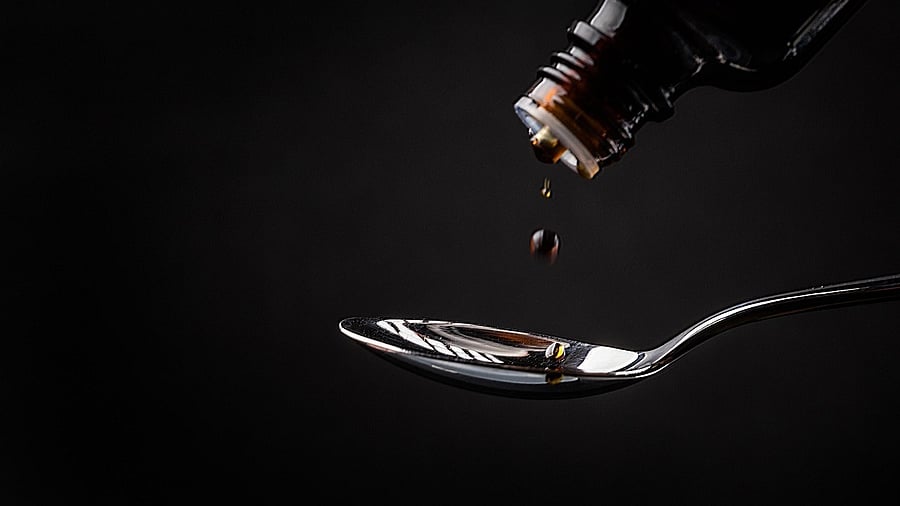
Representative image of cough syrup.
Credit: Pixabay Photo
The death of at least 16 children linked to the consumption of contaminated cough syrup in Madhya Pradesh and Rajasthan exposes criminal negligence by the drug manufacturers and abject failure in regulatory supervision on the part of the drug control authorities. These incidents are particularly alarming because the consequences of altering the contents of a drug with dangerous substances would be known to the manufacturers; this is also a fallout of poor oversight by the monitoring authorities. The contaminated batch of Coldrif, the cough syrup which is considered to have caused the deaths, has been found to contain 48% diethylene glycol (DEG), 480 times the permissible limit of 0.1%. DEG is an industrial solvent, not meant for medicines, but used in pharmaceutical ingredients, often due to poor oversight or because of the cost advantage it provides.
Contaminated cough syrups have taken lives within the country and outside. Between 2019 and 2020, 12 children died in Jammu after consuming a syrup. After the deaths of children in Gambia, Uzbekistan, and Cameroon due to the consumption of Indian-made cough syrups since 2022, the WHO issued worldwide alerts. But deaths, alerts, and advisories within the country have not had an impact. While cough and cold medications are not recommended for children below five years, at least six of the children who died in Madhya Pradesh were under four. It is reported that many of the drug production units in India have not registered themselves under the revised Good Manufacturing Practices (GMP), though the deadline for registration has been extended multiple times. This reveals a serious compliance gap that needs to be urgently addressed.
While these units flout production and manufacturing norms, the regulatory system and its established processes remain ineffective, weakening the enforcement of norms. Even the testing systems in place have been found as erratic and unreliable. The Union Health Ministry has now initiated inspections at the premises of drug manufacturing units in six states. States, including Karnataka, have brought in stringent checks on the use of cough syrups for children. The doctor who prescribed the syrup has been arrested, leading to protests by the IMA (Indian Medical Association), which contends that the doctor has been singled out while no action is initiated against the drug manufacturer. The manufacturing ecosystem needs to be cleaned up and the regulatory regime strengthened. It is the government’s responsibility to ensure that there is no lapse at any stage, and that the guilty are served an apt and timely punishment that will act as a strong deterrent.
